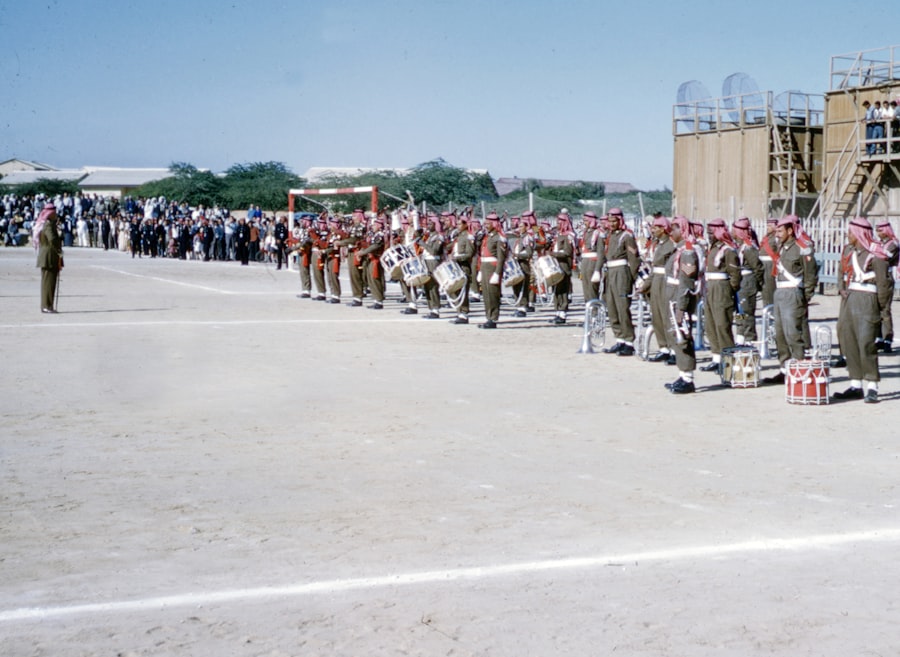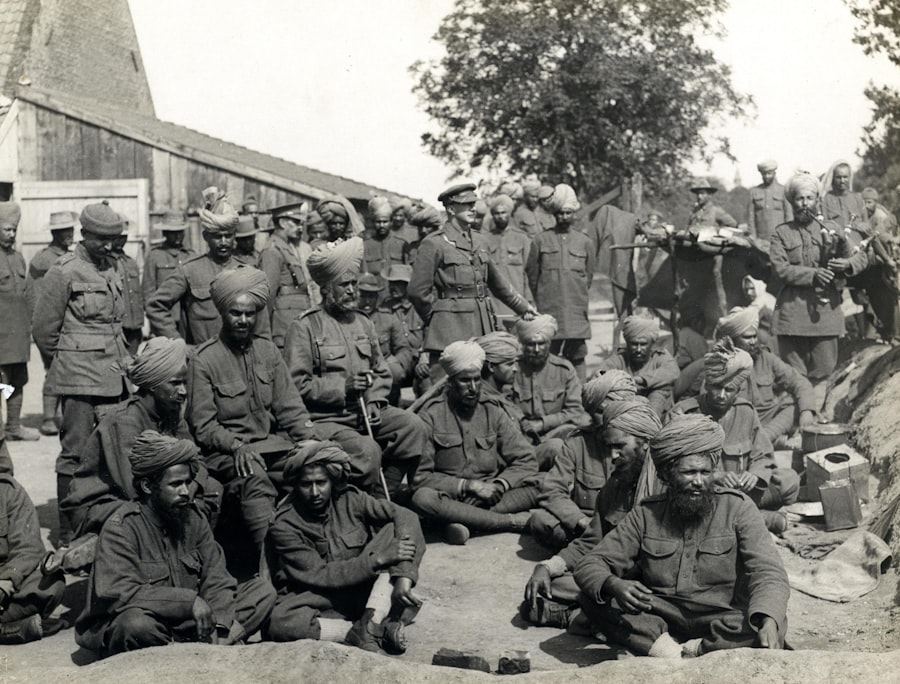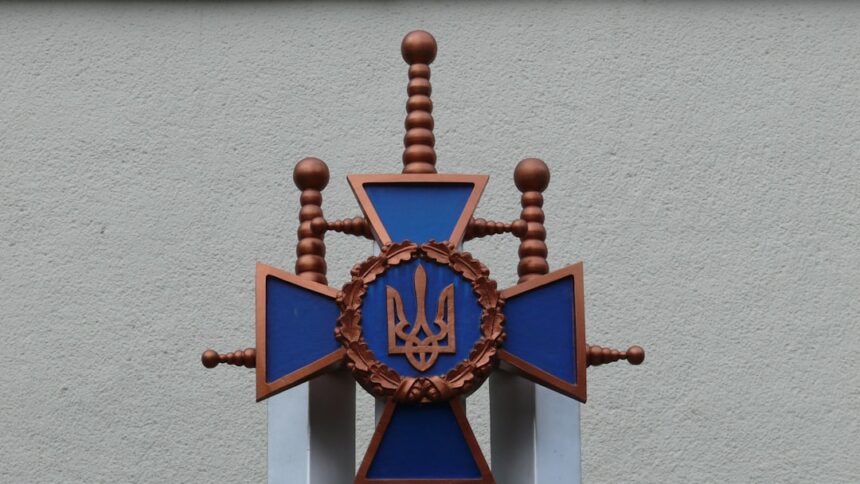The Wagner Group, a private military company with close ties to the Russian government, has garnered significant attention for its operations in various conflict zones around the world. Following the group’s controversial activities, particularly in Ukraine and Syria, its future became uncertain after the death of its leader, Yevgeny Prigozhin, in a plane crash in August 2023. This event left a power vacuum that many speculated would be filled by a successor organization.
Emerging from the shadows, the Africa Corps has positioned itself as a prominent player in the realm of private military operations, particularly within the African continent. This new entity not only seeks to continue the legacy of the Wagner Group but also aims to expand its influence and operations across Africa. The Africa Corps has quickly gained notoriety for its involvement in various conflicts and its strategic partnerships with local governments.
As a successor to the Wagner Group, it has inherited both the operational tactics and the controversial reputation associated with its predecessor. The emergence of this group raises critical questions about the future of security dynamics in Africa, as well as the implications for international relations and local governance. The Africa Corps is not merely a continuation of the Wagner Group; it represents a new chapter in the complex interplay between private military companies and state interests, particularly in regions rich in resources and fraught with conflict.
Key Takeaways
- Africa Corps has emerged as the successor to the Wagner Group, expanding Russian private military influence in Africa.
- The group plays a significant role in various African conflicts, providing military support and strategic assistance.
- Africa Corps possesses advanced military capabilities, enhancing its effectiveness in combat and security operations.
- The organization is involved in resource extraction, leveraging natural resources to fund its activities and increase political leverage.
- Its presence has sparked international concern due to controversies, political influence, and implications for regional stability.
The Emergence of Africa Corps
The Africa Corps emerged in the wake of the Wagner Group’s tumultuous history, capitalizing on the existing networks and relationships established by its predecessor. Drawing on a pool of experienced personnel, many of whom were former members of the Wagner Group, Africa Corps has quickly built a reputation for its operational effectiveness and adaptability in various conflict scenarios. The group’s formation was not merely a spontaneous reaction to the vacuum left by Wagner; it was a calculated move to maintain Russian influence in Africa while providing military services to governments seeking assistance in managing internal and external threats.
As it began to establish itself, Africa Corps focused on regions where instability was rampant, such as the Sahel and Central Africa. These areas have been plagued by insurgencies, civil wars, and political unrest, creating an environment ripe for intervention by private military contractors. The group’s ability to operate in these challenging contexts has allowed it to forge alliances with local leaders who are eager for support against insurgent groups or rival factions.
By positioning itself as a stabilizing force, Africa Corps has effectively embedded itself within the political fabric of several African nations, further solidifying its presence on the continent.
The Role of Africa Corps in African Conflicts

Africa Corps has played a multifaceted role in various African conflicts, often acting as both a military force and a political actor. In countries like Mali and the Central African Republic, where government forces have struggled against well-armed insurgents, Africa Corps has provided critical support through training, logistics, and direct combat operations. This involvement has not only bolstered local military capabilities but has also allowed the group to gain significant leverage over local governments, often leading to long-term contracts and agreements that favor their interests.
The group’s operations are characterized by a blend of conventional military tactics and unconventional warfare strategies. This adaptability enables Africa Corps to respond effectively to diverse threats, whether they stem from jihadist groups or rival political factions. By engaging in direct combat when necessary while also offering advisory services, Africa Corps has positioned itself as an indispensable ally for governments seeking to maintain control over their territories.
However, this involvement is not without consequences; the group’s presence often exacerbates existing tensions and can lead to further destabilization in already fragile regions.
Africa Corps’ Military Capabilities
| Metric | Details |
|---|---|
| Formation Date | February 1941 |
| Commander | Field Marshal Erwin Rommel |
| Primary Role | Armored Warfare and Desert Combat |
| Number of Divisions | Approximately 3 (including 15th Panzer Division, 21st Panzer Division, and Italian units) |
| Main Equipment | Tanks (Panzer III, Panzer IV), Artillery, Motorized Infantry |
| Operational Area | North Africa (Libya, Egypt) |
| Strength | Approx. 100,000 troops at peak |
| Logistics | Dependent on supply lines from Europe via Mediterranean Sea |
| Notable Battles | Battle of Gazala, Siege of Tobruk, Battle of El Alamein |
| Air Support | Provided by Luftwaffe’s Fliegerkorps Afrika |
Africa Corps boasts a range of military capabilities that make it a formidable force in the African theater. Drawing on advanced weaponry and tactical expertise, the group is equipped to handle various combat scenarios. Its personnel are often veterans of elite military units, bringing with them extensive experience in counterinsurgency operations and urban warfare.
This expertise allows Africa Corps to conduct operations that are not only effective but also tailored to the unique challenges presented by different conflict environments across Africa. In addition to traditional military capabilities, Africa Corps has also invested in intelligence-gathering and surveillance technologies. This focus on information warfare enhances its operational effectiveness by allowing for better situational awareness and strategic planning.
The group’s ability to integrate modern technology into its operations sets it apart from many local forces that may lack access to such resources. As a result, Africa Corps can execute complex missions with precision, further solidifying its reputation as a leading private military contractor on the continent.
Africa Corps’ Involvement in Resource Extraction
One of the most significant aspects of Africa Corps’ operations is its involvement in resource extraction activities across the continent.
By providing security for mining operations and other resource extraction activities, Africa Corps has positioned itself as a key player in this lucrative sector.
This involvement not only generates substantial revenue for the group but also strengthens its ties with local governments eager to exploit their natural wealth. The relationship between Africa Corps and resource extraction companies is often symbiotic. While Africa Corps provides security and logistical support, these companies offer financial incentives that can lead to long-term contracts and partnerships.
This dynamic creates a cycle where both parties benefit: local governments gain stability and revenue from resource extraction, while Africa Corps secures funding for its operations and expands its influence within these nations. However, this relationship raises ethical concerns regarding exploitation and the potential for human rights abuses, as local populations may suffer from displacement or violence associated with these operations.
Africa Corps’ Political Influence in African Countries

Africa Corps’ presence extends beyond military engagements; it has also become a significant political actor within several African nations. By aligning itself with specific governments and political factions, the group has been able to exert considerable influence over local governance structures. This political maneuvering often involves providing support to regimes facing internal dissent or external threats, thereby ensuring that those in power remain dependent on Africa Corps for their security needs.
The political influence wielded by Africa Corps can lead to complex dynamics within affected countries. While some governments may welcome the support provided by the group, others may view it as an encroachment on their sovereignty. This tension can manifest in various ways, including public protests against foreign military presence or calls for greater accountability regarding human rights violations associated with military operations.
As Africa Corps continues to navigate these political landscapes, its actions will undoubtedly shape the future of governance and stability in many African nations.
Controversies Surrounding Africa Corps’ Operations
Despite its operational successes, Africa Corps is not without controversy. The group’s activities have drawn criticism from various quarters, particularly regarding human rights abuses and its role in exacerbating conflicts. Reports have emerged detailing instances of excessive force used by personnel during operations against insurgent groups or civilian populations suspected of dissent.
Such actions have led to calls for greater oversight and accountability regarding private military contractors operating in conflict zones. Moreover, Africa Corps’ involvement in resource extraction has raised ethical questions about exploitation and environmental degradation. Local communities often bear the brunt of these operations, facing displacement or loss of livelihoods due to mining activities secured by military force.
The lack of transparency surrounding contracts between Africa Corps and local governments further complicates matters, leading to suspicions about corruption and mismanagement of resources that should benefit local populations.
Africa Corps’ Relationship with Russian Government
The relationship between Africa Corps and the Russian government is pivotal to understanding the group’s operations and objectives. While officially independent, many analysts believe that Africa Corps operates with tacit approval or even direct support from Moscow. This connection allows Russia to extend its influence across Africa without direct military involvement while providing plausible deniability regarding controversial actions taken by private contractors.
This relationship is mutually beneficial; Russia gains access to strategic resources and geopolitical leverage through its support for Africa Corps, while the group secures funding and operational backing from the state. As tensions between Russia and Western nations continue to escalate, this partnership may become increasingly important for both parties as they seek to counterbalance Western influence on the continent.
International Response to Africa Corps’ Activities
The emergence of Africa Corps has prompted varied responses from the international community. Some nations have expressed concern over the potential destabilizing effects of private military contractors operating unchecked within conflict zones. Human rights organizations have called for greater regulation of such entities, advocating for international frameworks that would hold them accountable for their actions.
Conversely, some countries view Africa Corps as a necessary partner in combating terrorism and maintaining stability in regions where traditional peacekeeping forces may be ineffective or unwilling to intervene. This dichotomy highlights the complexities surrounding private military contractors; while they can provide immediate security solutions, their long-term impact on governance and human rights remains contentious.
Future Implications of Africa Corps’ Presence in Africa
The continued presence of Africa Corps in Africa raises significant implications for regional security dynamics and governance structures. As the group solidifies its foothold across various nations, it may contribute to an environment where private military contractors become increasingly normalized as security providers. This shift could lead to a reliance on mercenary forces over traditional state militaries or international peacekeeping missions.
Furthermore, as conflicts persist or escalate within certain regions, Africa Corps may find itself drawn into more complex engagements that blur the lines between military intervention and political influence. The potential for increased violence or human rights abuses could provoke backlash from local populations or international actors alike, complicating efforts toward peacebuilding and stability.
The Impact of Africa Corps on African Security and Stability
In conclusion, the emergence of Africa Corps as a successor to the Wagner Group marks a significant development in the landscape of private military operations within Africa. While it offers certain governments a means of addressing security challenges posed by insurgencies and civil unrest, its presence also raises critical questions about sovereignty, human rights, and ethical governance. The group’s involvement in resource extraction further complicates its role as both a stabilizing force and a potential catalyst for conflict.
As Africa Corps continues to navigate this complex terrain, its impact on African security and stability will be closely scrutinized by both local populations and international observers alike. The balance between providing necessary security support and respecting human rights will be crucial in determining whether this new chapter in private military contracting ultimately contributes to or undermines peace across the continent.
The Wagner Group, known for its mercenary activities, has been a significant player in various conflicts, particularly in Africa. As discussions about its successor, the Africa Corps, gain traction, it’s essential to understand the broader implications of such groups on regional stability. For a deeper analysis of these dynamics, you can read more in this related article on In The War Room.
WATCH THIS! The Secret War for Africa’s Gold: How Private Armies Fund Global Conflict
FAQs
What is the Wagner Group?
The Wagner Group is a private military company (PMC) known for providing military services and mercenary operations, primarily linked to Russian interests. It has been active in various conflict zones, including Africa, the Middle East, and Eastern Europe.
What is the Africa Corps in relation to the Wagner Group?
The Africa Corps is considered a successor or affiliated entity to the Wagner Group, operating primarily in African countries. It is believed to continue similar activities, such as providing military support, training, and security services in the region.
Why did the Wagner Group establish or transition to the Africa Corps?
The transition or establishment of the Africa Corps is thought to be a strategic move to expand influence in Africa, adapt to changing geopolitical circumstances, or rebrand operations amid international scrutiny and sanctions against the Wagner Group.
In which African countries is the Africa Corps active?
The Africa Corps is reported to be active in several African countries, including but not limited to the Central African Republic, Mali, Sudan, and Libya. Their presence often involves military training, security services, and support to local governments or factions.
What are the main activities of the Africa Corps?
The Africa Corps engages in activities such as military training, security provision, combat operations, and resource protection. They often work alongside local forces or governments and may be involved in securing mining operations or other economic interests.
Is the Africa Corps officially recognized by any government?
The Africa Corps operates as a private military entity and is not officially recognized as a state military force. However, it often works in cooperation with or under the tacit approval of certain governments in Africa.
What are the international concerns regarding the Africa Corps?
International concerns include allegations of human rights abuses, destabilization of local conflicts, violation of international law, and the expansion of foreign military influence in Africa. The activities of such groups often complicate peace efforts and regional security.
How does the Africa Corps differ from the original Wagner Group?
While the Africa Corps is seen as a successor or affiliate, it may operate with a different structure, leadership, or branding to adapt to local contexts and international pressures. The core mission of providing military and security services remains similar.
Are there any sanctions against the Africa Corps?
Various countries and international bodies have imposed sanctions on entities linked to the Wagner Group and its affiliates, including the Africa Corps, due to their involvement in conflicts and alleged human rights violations.
Where can I find more information about the Wagner Group and the Africa Corps?
Reliable information can be found through international news agencies, research organizations specializing in security and conflict studies, government reports, and publications by human rights groups monitoring private military companies.




